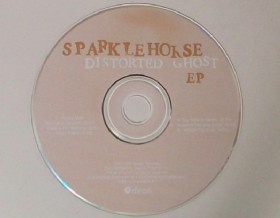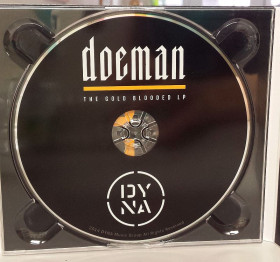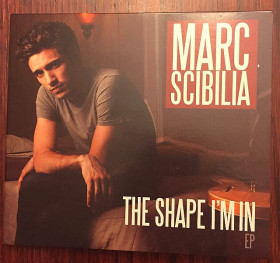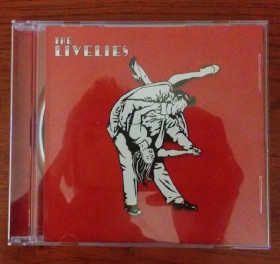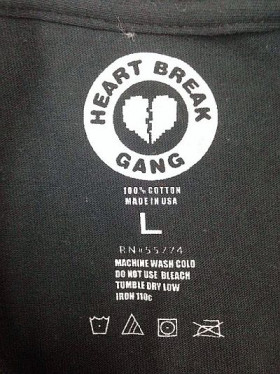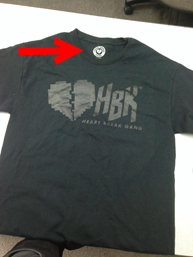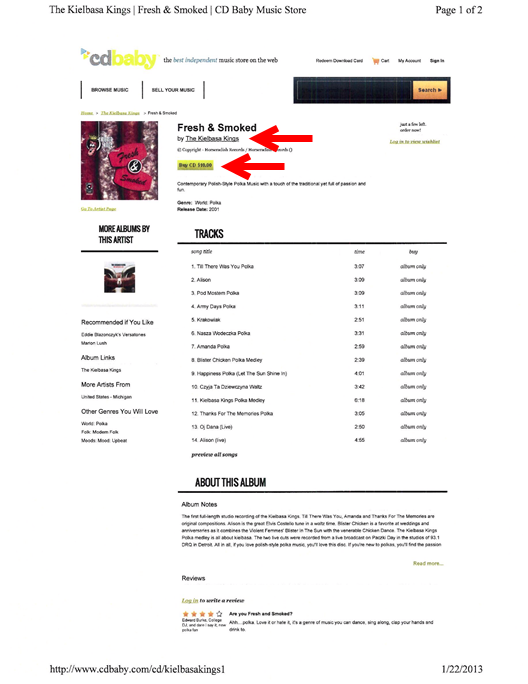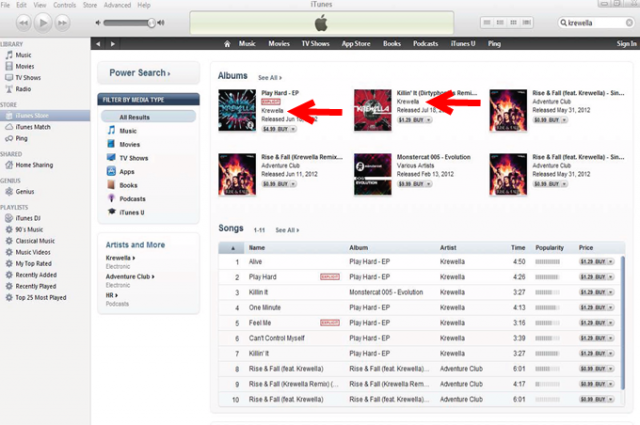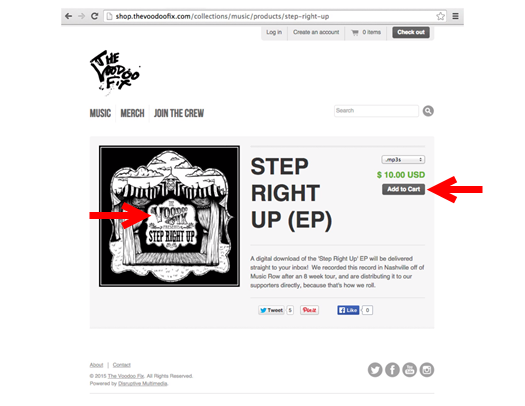If you’re a solo musical performer, a member of a band, or another type of musician or artist, you may want nationwide trademark protection for your name or your band's name.
As your music grows in popularity, so does your need to ensure consumers identify you as the source of your unique sound. One way to do that is by registering your name as a trademark with the United States Patent and Trademark Office (USPTO). Federal trademark registration isn’t mandatory, but it provides nationwide benefits you can use to legally enforce your trademark rights against infringers.
Before you read further, make sure you want to register a trademark and not copyright your work. You can compare the differences between trademarks and copyrights.
If you want to register a trademark, you must first file an application. You can check out the Trademark Basics Registration Toolkit for an overview of the entire application and registration process.
Avoiding application pitfalls
Some of the application requirements can be confusing. You can avoid potential pitfalls by reading more about these requirements.
Who should be identified as the trademark owner in the application?
When applying, you must identify who owns the trademark. This can be the person, group of people, or business that controls the nature and quality of the goods or services provided under the trademark.
You don’t need to form a business to apply to register your trademark.
If you’re an individual owner, you are the only one who owns the trademark. File the application in your name.
For example, you’re a solo musical performer and want to register your personal or stage name. In the application, record your personal name as the trademark owner, identify yourself as an individual, and specify your national citizenship (for example, USA, Canada, or Mexico).
If there are joint owners, more than one person owns the trademark but haven’t formed a legal partnership. Include each person’s name in the application.
For example, you’re in a musical group with more than one member and want to register your band name. Since you haven’t formed a legal partnership, all band members co-own the trademark as individuals. In the application, complete owner information for each member by identifying each member as an individual and specifying each member’s national citizenship (for example, USA, Canada, or Mexico).
If you’re in a legally formed partnership, you’ve filed paperwork with the state to form a partnership to manage the business or to own the trademark rights. You can either have a separate name for the partnership or not. How you complete the application depends on whether you have a partnership name.
- If you have a partnership name, file the application under the partnership name. For example, your band formed a partnership and is organized under a business name. Therefore, the application must identify the business name as the owner of the trademark. Also, you must identify the state (for United States partnerships) or country (for foreign partnerships) where the partnership legally formed. For partnerships organized in the United States, the application must include the names and countries of citizenship of all general partners.
- If there is no partnership name, file the application under the names of the general partners. For example, your band formed a partnership and is not organized under a business name. Therefore, list the names of the general partners as the partnership name. Also, you must identify the U.S. state (for United States partnerships) or country (for foreign partnerships) where the partnership was legally formed. For partnerships organized in the United States, the application must include the names and countries of citizenship of all general partners.
If you’re a corporation or a limited liability company (LLC), you’ve filed paperwork with the state to form a corporation or LLC to manage the business or to own the trademark rights. File the application under the corporation or LLC name.
For example, your band formed a corporation. Therefore, the application must identify the corporation name as the owner of the trademark. You may also include your assumed business name, if you have one. Also, include the U.S. state where the corporation was organized (for U.S. corporations or LLCs) or the country where the corporation was incorporated (for foreign corporations or LLCs).
What are goods and services?
A trademark isn’t a trademark unless it is used to indicate the source of your goods and services. Otherwise, it’s just a cool name, slogan, or design. Goods are physical products that bear your trademark. Services are activities you perform for others. When you apply to register your trademark, you’ll need to specify the goods and services that you use with your trademark.
Here are examples of goods and services often identified by musical performers:
- Goods featuring musical recordings
- Musical sound recordings, in International Class 009
- Compact discs and DVDs featuring music, in International Class 009
- Digital media, namely, downloadable audio files featuring music, in International Class 009
- Digital media, namely, and downloadable audio and video recordings featuring music, in International Class 009
- Downloadable musical sound recordings, in International Class 009
- Musical video recordings, in International Class 009
- Video recordings featuring music, in International Class 009
- Downloadable video recordings featuring music, in International Class 009
- Common ancillary products for musical bands
- Posters, in International Class 016
- Stickers, in International Class 016
- T-shirts, in International Class 025
- Hats, in International Class 025
- Entertainment services for musical bands
- Entertainment services, in the nature of live musical performances, in International Class 041
- Entertainment, namely, live music concerts, in International Class 041
- Entertainment services, namely, personal appearances by a musical group, in International Class 041
- Entertainment services, namely, providing non-downloadable prerecorded music, information in the field of music, and commentary and articles about music, all on-line via a global computer network, in International Class 041
- Entertainment services, namely, providing a website featuring non-downloadable videos of musical performances by a musical group, in International Class 041
What are specimens?
A specimen is an example of how you actually use your trademark in commerce with your goods or services.
Whether you’re currently using your trademark or have an intent to determines your application filing basis. Your filing basis impacts your application requirements.
Examples of specimens for goods
You can submit a photograph of a CD showing your trademark. For example, the below CDs have the trademarks SPARKLEHORSE and DOEMAN directly on them.
Additionally, you can have product labels showing your trademark. For example, the below photos show the trademark HEART BREAK GANG on a label sewn on the neckband of a T-shirt.
Having your trademark as a product label is different than having it printed across the front of a shirt. If you use your trademark on the front of a shirt, it can trigger an ornamentation refusal. This means your specimen doesn’t show the trademark being used to indicate the source of the goods. Instead, it is merely being used as decoration. There are multiple ways you could overcome this refusal, including submitting an acceptable specimen (like a photo of the trademark on a shirt tag) or by establishing secondary source.
Another specimen type is called an “electronic point of sale display.” This refers to a webpage that shows the trademark being used with the goods you can immediately purchase. For example, the below image depicts a webpage showing a CD for sale, with the trademark THE KIELBASA KINGS appearing above the CD, the price appearing below the CD, and a shopping cart button appearing on the page. For a webpage, you’ll need to include the URL and date you accessed the webpage in your submission.
You can include a similar point-of-sale display specimen for downloadable music. For example, the below image depicts a webpage showing the trademark KREWELLA featuring a "buy" link that alerts the consumer that the identified goods are available for immediate download.
Then, for downloadable music files, your specimen could be something like the below image. You see a webpage showing the trademark THE VOODOO FIX and featuring an "add to cart" link and text about the goods that states it is “a digital download.” This alerts the consumer that the identified goods are available for immediate download.
Other considerations
There are other things to consider throughout the application process.
Can I register a title of a single creative work?
No, the title of a single creative work, such as the title of a single album or song, is not registrable as a trademark unless it has been used on a series of creative works. You can find definitions and examples of a single creative work, as well as find response options if you receive a title of a single work refusal during the examination process.
Can I register my name or a stage name?
It depends. If you want to register it for your songs and videos, you’ll need to provide evidence that your name or stage name is both used on a series of creative works and is used as a source identifier for the goods. However, you can register your name or stage name (or pseudonym, nickname, portrait, or signature) as a trademark for your live performances and no evidence is needed to show use on a series.
Another exception to the requirement for use on a series of creative works is for original works for art (such as sculptures, murals, paintings, or jewelry). If you create the art and affix your name to it, then you don’t need to show it used in connection with a series.
Evidence the name is used on a series of creative works
You need to establish that your name is used as a trademark on at least two different creative works. These works need to show different or changed content.
Unacceptable evidence: If you show your name on different copies or formats of the same work, that doesn’t establish use on a series of different works. You can’t just show how the same work is available in different media (such as, the same album is available on CD, phonograph record, and as a downloadable music file).
Acceptable evidence: You show your name as a trademark on several albums featuring different songs. In the below example, you can see how the trademark BON JOVI is used on four CD covers featuring different material.
Evidence the trademark is a source identifier
You must show evidence of your control over the name and quality of your series of work. This can include:
- A verified statement indicating “the applicant publishes or produces the goods and controls their quality”
- Copies of license agreements or other contractual evidence showing you control the quality of the work (e.g., recordings) and use of the name
- Evidence of promotion and recognition of the name as a source identifier for the series of work, which includes:
- Copies of advertising that promote the individual or group name as the source of the series of work
- For example, an advertisement for the CDs featuring the wording, “Now available at your local record store, the new album from Joey Bananas, 'Choose Your Own Destiny,' along with his prior hit album, 'This Way to Nowhere'”
- Copies of third-party reviews showing the reviewer’s use of the individual or group name to refer to a series of works
- For example, a review in a newspaper with the text “The new album from Joey Bananas, 'Choose Your Own Destiny,' is a strong follow-up to his last album, 'This Way to Nowhere'”
- Evidence showing the name used on a website or applications associated with the series of works
- For example, a screenshot from a music retailer’s website showing the name of the artist “JOEY BANANAS” at the top of the webpage above images of different “JOEY BANANAS” albums, along with a brief synopsis describing the different musical styles employed in the depicted albums
- Copies of advertising that promote the individual or group name as the source of the series of work
Do I need consent to register someone else's name or stage name?
Yes. If your trademark includes the name or likeness of a particular living individual in a trademark, you must provide both:
- A written consent personally signed by the individual named or shown in the trademark
- A statement that the name, portrait, likeness, or signature identifies a living individual whose consent is of record
If you don’t get consent, you will likely receive a refusal to register.
What do I do if my trademark looks like someone's name?
If the trademark doesn’t refer to a living individual, but can be interpreted as a name (for example, a band name that looks like a person’s name), then include a statement in the application that the trademark isn’t the name of a particular living individual.
What happens once I submit my application?
Your application will begin the examination process. During this process, you may receive an office action explaining why your trademark isn’t registrable and suggestions for fixing the application, if possible. If you’re the U.S.-domiciled trademark owner or the U.S.-licensed attorney, you can respond to the office action.
You can also check the status of your application at any time to monitor where your application is in the examination process and view all documents in your file.
If your trademark registers, you’ll need to maintain your federal registration or you’ll lose your federal protection.
Who is responsible for protecting my trademark rights?
You are. The owner of a trademark registration is responsible for taking legal action to enforce their trademark rights.
If you suspect that your registered trademark is being infringed by others, consider hiring an experienced trademark attorney for assistance pursuing trademark litigation.
What happens if the band lineup changes or someone changes their name?
During the application process or after registration trademark owners change their name for various reasons. For example, the band may change from joint owners to a corporation or LLC, or one or more original members of the band may leave and be replaced by new members. When ownership of the trademark changes, you must submit proper ownership documentation (such as assignments or name change documents) to the USPTO Assignment Recordation Branch, along with the recordation fee.


